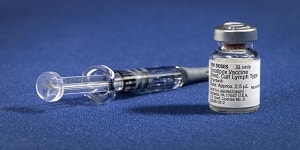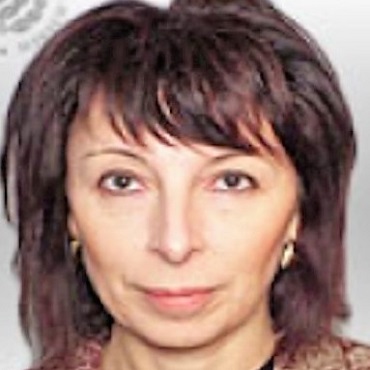
Vaccine R&D 2019

Theme: A Global discussion on Vaccine Research & Development
Meetings International looks forward to welcoming all the participants across the world to attend “3rd Vaccine R&D International Vaccine Congress’’ during September 20-21, 2019 in Singapore City, Singapore. The conference highlights the theme “A Global discussion on Vaccine Research & Development”. Vaccine R&D 2019 conveys upon a stage to share and talk about every one of the developments and potential advantages and constraints of immunizations and how to avert and control ailments. With individuals from all around the globe concentrating on learning about accumulating worldwide researches on dermatology. Conduct presentations, distribute information, meet with present and potential scientists, make a splash with new drug developments, and receive name recognition at this 2-day event.
Session 1: Vaccine Research & Development
Vaccine development put through a lengthy, rigorous process of scientific evaluation before licensed for general use but the process is time-consuming. The clinical trials in which vaccines are evaluated ensure that licensed vaccines are safe, effective, and appropriate to use. In the past years vaccine development did the unprecedented Ebola disease outbreak galvanized research and response, as we continue to search for solutions, we must review the lessons learned in order to overcome the current challenges. The current system for developing, testing, and regulating vaccines developed during the 20th century as the groups involved standardized their procedures and regulations. The Vaccine conference discuss the topics related to vaccination and immunology.
Vaccine Research Conference | Vaccine Conference | Immunization Conference | Immunology Conference | Vaccine &Vaccination | Vaccine Congress | Infectious Diseases Conference | Vaccine Production Conference | Global Vaccine Conference | Vaccination Conference
Session 2: Vaccine and Types
Vaccines contain an active component i.e., an antigen which generates the protective immune response. These vaccines are of two types live or inactivated. Live, attenuated vaccines consist of ‘wild’ viruses or a bacterium that has been weakened in the lab so it can’t cause disease. Because a live, attenuated vaccine is a natural infection, these vaccines are “teachers” of the immune system. Whereas inactivated vaccines are created by wild viruses or bacteria that have been grown in a culture medium and inactivated before being included in a vaccine. Inactivated toxins for bacterial diseases cause illness; or merely segments of the pathogen this includes both subunit and conjugate vaccines.
Vaccine Research Conference | Vaccine Congress | Immunization Conference | Vaccination Conference | Vaccine Production Conference | Vaccine &Vaccination | Global Vaccine Conference | Infectious Diseases Conference | Vaccine Production Conference | Global Vaccine Conference
Session 3: Veterinary Vaccine
The major aims of Vaccine conference on veterinary vaccines are to enhance the health and welfare of animals. Vaccination of creatures are utilized both to keep their contracting sicknesses and to counteract transmission of illness to humans. Both creatures kept as pets and creatures raised as domesticated animals are routinely immunized to prevent infections transmitted from wild categories. In a few cases, wild populations might be inoculated. While it is the case of transmitted diseases and zoonotic diseases. These veterinary vaccines have an impact not only on animal health but also on human health through preventing animal-to-human transmission of infectious diseases. The constant relation between human and animals researchers will be of major importance for finding new technologies. There are several vaccines are available and research going on in development of several veterinary vaccines i.e. rabies, canine distemper, canine parvovirus, irresistible canine hepatitis, adenovirus-2, leptospirosis, brocatelle, canine Parainfluenza infection, and Lyme ailment, and others.
Session 4: Vaccination during Pregnancy
Vaccinating the mother before, during and after the pregnancy does not only protect the mother, it will also protect the baby’s health. A risk to a developing foetus from vaccination of the mother during pregnancy is theoretical. No evidence exists of risk to the foetus from vaccinating pregnant women with inactivated virus or bacterial vaccines or toxoids. Pregnant mothers should not take live vaccines, such as Hepatitis B vaccine, polio vaccine, rabies and rotavirus vaccine; because there's a slight chance these will harm the unborn baby. During pregnancy tetanus/diphtheria/pertussis (Tdap) is recommended, preferably between 27 and 36 weeks gestation, to protect baby from whooping cough.
Global Vaccine Conference | Vaccination Conference | Vaccine Congress | Infectious Diseases Conference | Vaccine Production Conference | Vaccine &Vaccination | Global Vaccine Conference | Infectious Diseases Conference | Vaccine Production Conference | Immunization Conference
Session 5: Vaccination for Children
Vaccination given to children is called childhood Immunization. There are several vaccines for infants, new-born and small child’s up to 6 years so nowadays vaccination for babies are mandatory until unless the child has special circumstances, such as a compromised immune system or a neurological disorder all these precautionary steps are explained briefly on Vaccine Conference. In the society, we can see most of the children are facing with some immune disorders. Epidemics of many preventable diseases could return without vaccines, resulting in increased and unnecessary disability, illness and death among children. That is why it’s important that children, especially infants and young children receive recommended immunizations on time.
Vaccine Research Conference | Vaccine Conference | Immunization Conference | Immunology Conference | Vaccine &Vaccination | Vaccine Congress | Infectious Diseases Conference | Vaccine Production Conference | Global Vaccine Conference | Vaccination Conference
Session 6: Cancer Vaccine
Vaccines are stated to healthy people to help prevent infections, such as measles and chicken pox. These vaccines use weakened or killed germs like viruses or bacteria to start an immune response in the body. Most of the cancer vaccines work the same way, but they make the person’s immune system attack cancer cells. Cancer treatment vaccines are different from the vaccines that work opposed to viruses. These vaccines try to get the immune system to attack against cancer cells in the body. Some cancer therapy vaccines are made up of cancer cells and parts of cells, or pure antigens. Sometimes a patient’s own immune cells are detached and exposed to these substances in the lab to create the vaccine. Once the vaccine is ready, it is injected into the body to increase the immune response against cancer cells. Cancer vaccines cause the immune system to attack cells with one or more specific antigens. The immune system contains special cells for memory, it’s hoped that the vaccine might continue to work long after it’s given.
Global Vaccine Conference | Vaccination Conference | Vaccine Congress | Infectious Diseases Conference | Vaccine Production Conference | Vaccine &Vaccination | Global Vaccine Conference | Infectious Diseases Conference | Vaccine Production Conference | Immunization Conference
Session 7: HIV and AIDS Vaccine
Vaccine for AIDS does not yet exist, but efforts to develop a vaccine against HIV are going on. At present there is no restorative HIV immunizations affirmed by FDA, the virus that causes AIDS, have been underway for many years. CD4 cells are a type of lymphocyte, these plays an important part of the immune system. HIV vaccine would play a powerful role in ensuring the end to the AIDS epidemic. The “therapeutic” vaccine would not stop infection, but it may prevent or delay illness in people who do become infected, and might also reduce the risk of transmitting the virus to other people. The idea behind all HIV vaccines is to encourage the human immune system to fight HIV and all discussed in Vaccine conference.
Vaccine Research Conference | Vaccine Conference | Immunization Conference | Immunology Conference | Vaccine &Vaccination | Vaccine Congress | Infectious Diseases Conference | Vaccine Production Conference | Global Vaccine Conference | Vaccination Conference
Session 8: HPV Vaccine
The vaccine protects against the human papillomavirus (HPV).If the virus is long lasting in the organs it leads to some types of cancers. The United States FDA has approved HPV vaccine to prevent cervical, vaginal and vulvar cancer. Sexually transmitted HPV infections are common and asymptomatic, untreated cases in women are the main cause of cervical cancer. HPV vaccine is recommended for young women through age 26 and for young men through age 21. It is important to take HPV vaccine for teenagers, Vaccine congress gives a brief idea on HPV vaccine.
Vaccine Research Conference | Vaccine Congress | Immunization Conference | Vaccination Conference | Vaccine Production Conference | Vaccine &Vaccination | Global Vaccine Conference | Infectious Diseases Conference | Vaccine Production Conference | Global Vaccine Conference
Session 9: Production and Effectiveness of Vaccine
Vaccine conference states that Vaccine production has several stages. The manufacturing process of the vaccine has these steps Inactivation, Purification, Formulation. First, the antigen itself is generated. Viruses are grown either on a single cell i.e. on chicken eggs. The microorganisms are grown in bioreactors. Likewise, a recombinant protein derived from the viruses or microorganism can be generated in yeast. After the antigen is generated it is isolated from the cell by inactivating the virus. Recombinant proteins need many operations concerning ultrafiltration and column chromatography to be purified, and preservatives allow using multidose vials as Aggregate vaccines are more difficult to broaden and bring.
Vaccine Research Conference | Vaccine Conference | Immunization Conference | Immunology Conference | Vaccine &Vaccination | Vaccine Congress | Infectious Diseases Conference | Vaccine Production Conference | Global Vaccine Conference | Vaccination Conference
Session 10: Immunology of Infectious diseases
Research in laboratories is primarily focused on infectious diseases recently in developing countries. Currently, immune-mediated and infectious disease includes HIV/AIDS, Tuberculosis, Malaria, Pneumonia, Enteric Diseases, and Autoimmune diseases. Infectious diseases are contagious diseases caused by pathogenic microorganisms. The basic pathogenic mechanisms leading to the development of advanced diagnostic tools and vaccines used in prevention and control of infection and the identification of new targets for antiviral and anti-parasitic drugs. Pathogens inhibit functioning of cytokines mechanisms and arrest immune recognition of infected cells. Natural killer cells are important for eliminating cells infected by virus, and by anti-HIV immunity.
Global Vaccine Conference | Vaccination Conference | Vaccine Congress | Infectious Diseases Conference | Vaccine Production Conference | Vaccine &Vaccination | Global Vaccine Conference | Infectious Diseases Conference | Vaccine Production Conference | Immunization Conference
Market Analysis:
3rd Vaccine R&D International Vaccine Congress is the best stage where you can consider the novel techniques to prevent diseases and expanding insusceptibility levels. This conference had particularly done with the diverse themes like bacterial immunizations, viral vaccines, travel and palatable immunizations and so on and cardiovascular immunopathy, neurological and respiratory immunopathology and so forth with various sessions. Vaccine R&D 2019 invites Young researchers at each profession stage to submit abstracts and announcing their recent logical discoveries and research in immunization and vaccination in oral and publication sessions. The congress will incorporate welcomed speakers, oral introductions, notice session and the youthful researcher grant.
Scope and Importance:
Vaccinology and Immunology meeting unites the Global pioneers in Immunology and significant fields to introduce their examination at this elite logical program. Vaccine R&D 2019 facilitating introductions from editors of conspicuous alluded diaries, prestigious and dynamic agents and leaders in the field of Immunology and vaccinology. Vaccination is a key to destroy the illnesses. It is a subject for the experts who looks past the clinical prospects. Vaccinology is a noteworthy field in destruction of ailments. Conventional ways to deal with antibody configuration were to inactivate the human pathogen or a related creature homologue, Vaccinology is the study of vaccine and how the safe framework reacts to immunizations, yet furthermore incorporates ceaseless assessment of vaccination projects and immunization wellbeing and viability, and observation of the study of disease transmission of immunization preventable illnesses. This part gives a concise review of a portion of the fundamental ideas of immunology and Vaccination.
Targeted Audience:
Vaccination Practitioner, Vaccination Professionals, Renowned Vaccination personalities, Doctors, professors, health care professionals, Immunization prefessionals, students, nurses, directors of association and societies can be the target audience.
Vaccine Markets in Eastern Europe to 2022:
The report bundle Vaccine Markets in Eastern Europe to 2022 offers the most progressive industry information on the real market circumstance and future viewpoint for antibodies in various Eastern European nations. The bundle incorporates nation reports from the accompanying nations: Armenia, Bosnia Herzegovina, Bulgaria, Croatia, Cyprus, Czech Republic, Estonia, Georgia, Greece, Hungary, Latvia, Lithuania, Macedonia, Moldova, Poland, Romania, Russia, Serbia, Slovakia, Slovenia, Turkey and Ukraine. The exploration incorporates authentic information from 2011 to 2017 and gauges until the point when 2022 which makes the reports a precious asset for industry administrators, promoting, deals and item chiefs, specialists, investigators, and other individuals searching for entering industry information in promptly available records with unmistakably exhibited tables and charts.
Market outlook of the global vaccine market:
The vaccine showcase is relied upon to achieve USD 49.27 Billion by 2022 from USD 34.30 Billion out of 2017, at a CAGR of 7.5%. The development of the market is ascribed to the rising pervasiveness of ailments, expanding government and nongovernment financing for vaccine advancement, and expanding ventures by organizations.
The vaccines market is highly competitive with the presence of various players. Some of the major players operating in the market are GlaxoSmithKline, plc (U.K.), Pfizer, Inc. (U.S.), Merck & Co., Inc. (U.S.), Sanofi Pasteur SA (France), Astellas Pharma Inc. (Japan), CSL Limited (Australia), Emergent BioSolutions, Inc. (U.S.), Johnson & Johnson (U.S.), Medimmune, LLC (U.S.), Serum Institute of India Pvt. Ltd. (India), Bavarian Nordic (Denmark), Mitsubishi Tanabe Pharma Corporation (Japan), Daiichi Sankyo (Japan), Protein Sciences Corporation (U.S.), and Panacea Biotech (India).
Universities related to Immunology Worldwide:
Europe:
University of Cambridge
University of Oxford
University of Copenhagen
University College London
Imperial College London
University of Zurich
University of Manchester
University of Munich
University of Edinburgh
Pierre and Marie Curie University
Catholic University of Leuven
Heidelberg University
University of Helsinki
Asia Pacific:
Osaka University
University of Tokyo
National University of Singapore
Kyoto University
Mahidol University
Tel Aviv University
University of Hong Kong
Keio University
Hebrew University of Jerusalem
Seoul National University
National Taiwan University
Sun Yat-sen University
Fudan University
Zhejiang University
Peking University
Middle East:
Alexandria University
Cairo University
American University of Kuwait
The Lebanese American University (LAU)
Weill Cornell Medical College in Qatar
Paris-Sorbonne University Abu Dhabi
Mohammed bin Rashid University of Medicine and Health Sciences
Hebrew University
King Saud bin Abdulaziz University for Health Sciences
King Saud University
Gulf Medical University
Sana'a University
Immunology Related Association & Societies:
USA:
American Association of Immunologists
American Academy of Allergy, Asthma and Immunology
American Autoimmune Related Diseases Association
American Society of Gene Therapy
The Society for Mucosal Immunology
The American Society of Hematology
Association for Professionals in Infection Control and Epidemiology
Infectious Diseases Society of America
National Medical Association
Federation of American Societies for Experimental Biology
Federation of Clinical Immunology Societies
Asia Pacific:
Asia Pacific Association of Allergy, Asthma and Clinical immunology
Australian Gene Therapy Society
Public Health Association of New Zealand
Japanese Society for Immunology
Indian Immunology Society
Malaysian Society of Allergy and Immunology
Australasian Society for Immunology Incorporated
HIV Medicine Association of India
Taiwan Tongzhi Hotline Association
Conclusion:
More up to date and more costly vaccines are coming into the market speedier than at any other time. Vaccine improvement: expanding speculation. Tripled in an incentive from USD 5B out of 2000 to nearly USD 24 B in 2013 – Influenza antibody showcase: assessed at $2.9 billion of every 2011 to $3.8 billion by 2018 – US: $1.6 billion of every 2011 to $2.2 billion out of 2018. The worldwide market anticipated ascending to USD 100 B by 2025. More than 120 new items in the advancement pipeline. Changing the status of the immunizations inside the pharmaceutical business. New plan of action for vaccines is rising.
Reference:
- https://www.marketwatch.com/press-release/at-70-cagr-oral-vaccines-market-size-poised-to-touch-usd-3010-million-by-2024-2019-05-02
- https://www.grandviewresearch.com/press-release/global-vaccine-market
- https://www.transparencymarketresearch.com/global-vaccine-market.html
- https://www.ghp-news.com/2017-vaccines-market-worth-49-27-billion-usd-by-2022
- Vaccine Research & Development
- Vaccine and Types
- Veterinary Vaccine
- Vaccination during Pregnancy
- Vaccination for Children
- Cancer Vaccine
- HIV and AIDS vaccine
- HPV vaccine
- Production and Effectiveness of vaccine
- Immunology of Infectious diseases
- Journal of Vaccines & Clinical Trials


























































































































